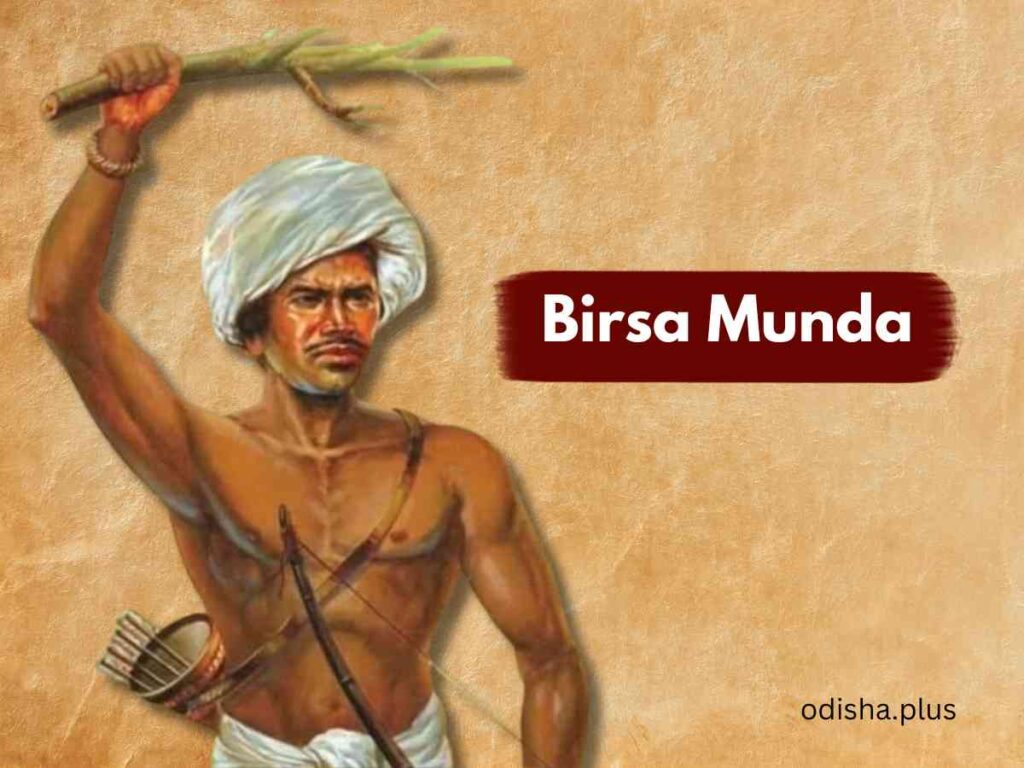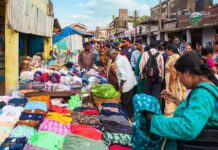“My friends and brethren, I may not live to see the end of British, but I urge you, not to submit and fight to earn back the rights to our jungle….”
Dr. Sourav Gupta

The closing lines from the Bangla Play, ‘Birsa Mundar Gaan’ (The song of Birsa Munda) oozing out of the dying Birsa Munda, gives us an indication of the zeal and vigour India’s iconic tribal freedom fighter could gather while fighting the British. Birsa’s leadership in the Ul gulaan, fight of the Mundas of Chota Nagpur plateau of Jharkhand in the 19th century was pivotal in the history of independence movement of India. The tribal community he represented and their issues still remain extremely relevant in Independent India. As we have recently celebrated the 75th year of Independence, it will be pertinent to spare a thought for Indian tribal community in the light of Birsa’s life and action.
The background to the Munda revolt against the British in the Chota Nagpur plateau may be traced to Birsa’s early life where he was taken to maternal uncle’s village due to poverty. Gradually, he came in touch with Christian Missionary and converted to Christianity. He was admitted to German Mission School which he left prematurely. In his willingness to participate in the freedom struggle, Birsa and his family severed their association with the German Mission.
Notable here is the prevalence of similar trends in the tribal society even today – poverty and religious conversions in tribal belts. While the Government of India after the independence undertook several measures for tribal upliftment, it was not able to formulate a suitable tribal development policy which has the idea of forest rights central to it. The rights of the forests lie with the forest dwellers, the tribal, is an idea which has not explicitly found its guaranteed position neither in the constitution and legislation nor in the policy framework of our country.
Whatever we find, is only on paper, without any meaningful implementation. And, exactly this, was at the centre of the Munda agitation. Birsa asserted and risked his young life to fight the British because the rights of his own people to the jungle was at stake. The forests have become sources of timber and many other products which businessman want to mint money from. Earlier it was British, now it’s the timber merchants, nothing much has changed.
Migration is another issue, which peeves the tribal way of life in India. Birsa migrated for poverty from Chalkad to Ayubhatu. Even now, in the tribal stretches of Bastar in Chattisgarh, Koraput in Odisha and Sunki in Andhra Pradesh, tribal are forced to migrate as portrayed poignantly in Gopinath Mohanty’s writings. Both the land and forest rights and migration issues are intrinsically linked to poverty eradication and development, which requires more sensitive and grounded approach. And there are cues to be taken from Birsa’s ideals and the Munda agitation.
The government policies with regards to development in India have been top down and not participatory in nature. For long, we have not considered the tribal worthy of participating in their own development. This is exactly what the Mundas demanded while agitating under Birsa. The ‘Dharti Aba’, as he was fondly called, was not in favour of limiting the tribal in the boundaries of a certain religion or culture. Rather, he preached and worked hard to revive the original, indigenous culture. The miracle healing and magical omnipresence which later became a part of his mythical persona, actually had the cultural revival to roots at its centre.
The millions of year’s old tribal cultural sphere with its indigenous idioms, occupation, myths, legends, folklores, medicines, agricultural techniques have really not been explored to the fullest and gradually is getting eclipsed under the sun of modern development and globalization. Much like Birsa, the ‘cloud capped star’, one whom the British could sense but struggled to capture and the one who is obviously forgotten by the new generation. It is high time that India use its rich tribal human resource to build the nation and foster the patriotic spirit witnessed in Birsa’s Ul gulaan.
More than naming airports in his name or placing his statues, it is imperative today to study Birsa’s philosophy, his dreams for the community and incorporate it in a newly revamped and grounded development policy for the tribal. It is highly expected that India, on its way to become a self reliant Bharatvarsha and under the dynamic leadership of the President of India Mrs Droupadi Murmu, a tribal leader herself and the visionary Prime Minister Narendra Modi, will pay a befitting tribute to ‘Dharti Aba’ Birsa Munda. The University Grants Commission in a recent notification has directed all the Universities of the country to celebrate Bhagaban Birsa Munda’s birth anniversary as Janajatiya Gaurav Divas during November 15-26. The road ahead looks promising indeed.
(The writer is a media faculty at the Central University of Odisha, Koraput. Views expressed are personal)
#odisha #birsa-munda #tribal-hero #tribal-communities #janajatiyagauravdivas



























